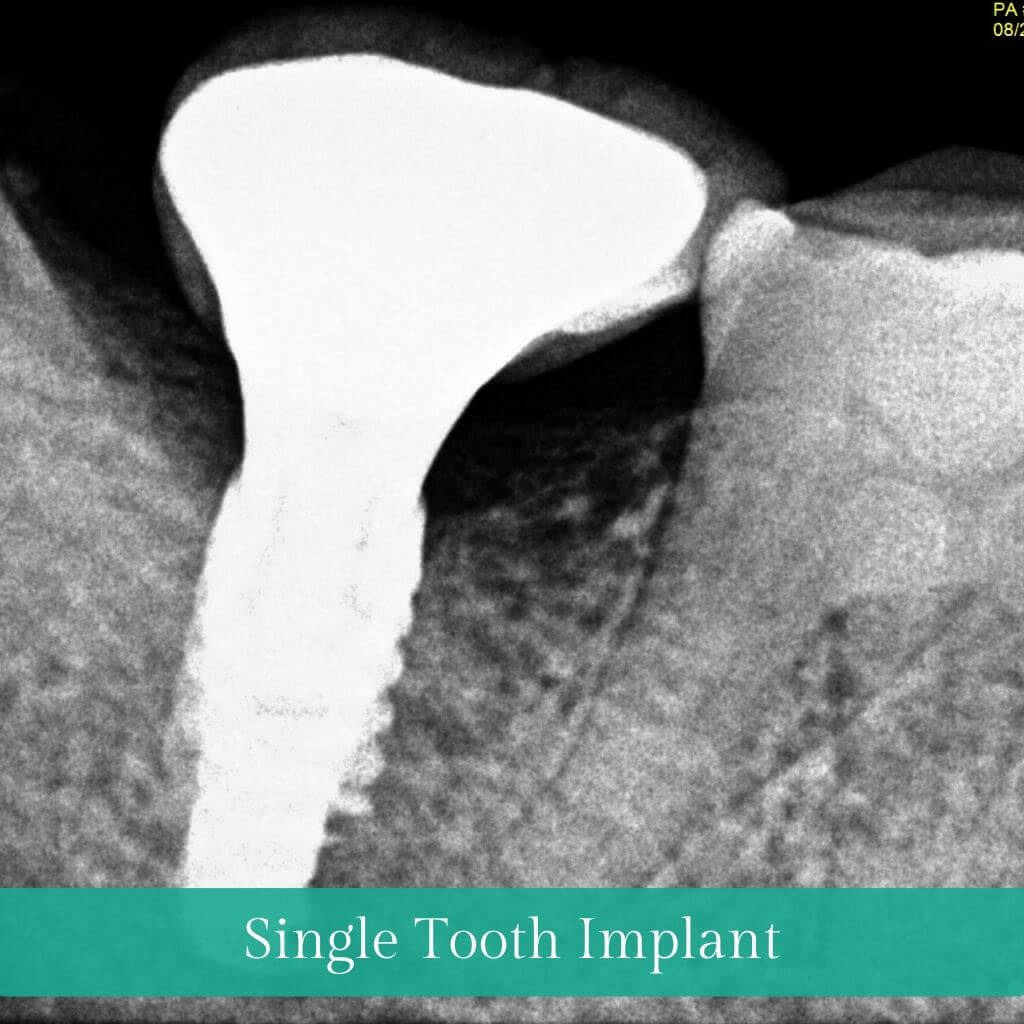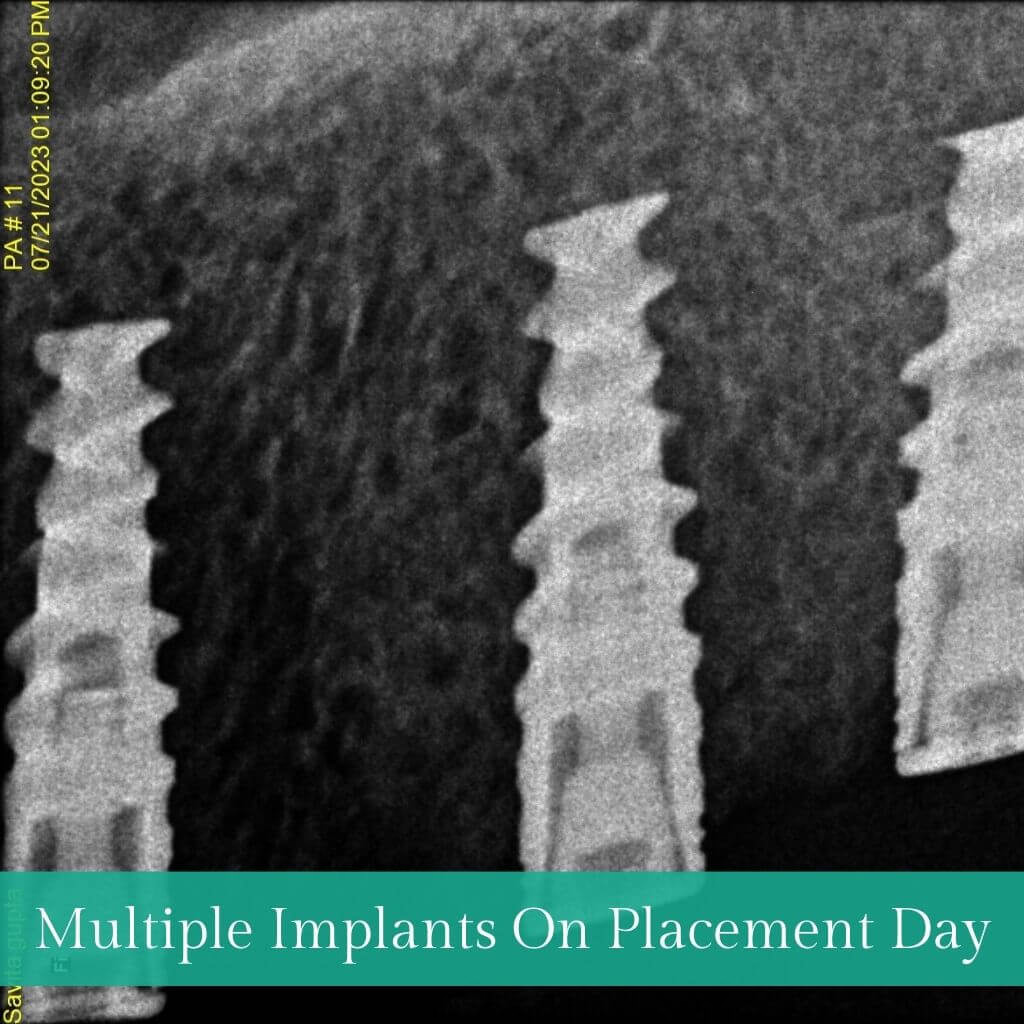5 Things to Know Before You Get a Dental Implant Fixed in Your Mouth!
You may have heard that getting a dental implant is a good idea, but do you know what it takes to get one?
You may be surprised to learn that age is not a barrier, and smoking can be detrimental.
Juxtaposing this with the fact that the success rate is high and with proper maintenance, a dental implant can be a great choice.
Read on to discover the five things you need to know before getting a dental implant fixed in your mouth.
Key Takeaways
A strong and healthy jawbone is crucial for successful implant placement
Overall health is more important than age for dental implants
To increase your chances of success, it's best to quit smoking at least two weeks before the procedure.
Regular brushing, flossing, and using mouthwash, along with regular dentist visits, are necessary for a healthy implant.
Bone Health Matters
It is essential to consider your bone health when getting a dental implants fixed. Your jawbone needs to be strong and healthy, as it must support the implant for it to be successful. It's recommended to get a bone density scan done by your dentist and check for sufficient surrounding bone material before committing to the procedure. If the implant is placed too close to the gum line or in an area with insufficient bone material, it could fail.
Additionally, it's advised to wait at least three months after tooth removal before getting a dental implant, as a healthy layer of bone needs to form around the socket before the implant can be placed. Your dentist can also assess any existing dental conditions, such as gum disease, which could weaken the jawbone and lead to implant failure if left untreated.
Age Is Not a Barrier
Age doesn't have to be a barrier to getting a dental implant. As long as you're in good health and have enough existing bone tissue in your jaw, you can still get a dental implant regardless of your age. Here are some important points to consider:
- Overall, health is more important than age for dental implants.
- Pain tolerance and healing time may vary from person to person.
- Long-term maintenance of dental implants. necessitates consistent practices such as regular brushing and flossing, as well as routine dental check-ups, regardless of your age.
The success rate for dental implants remains high, regardless of age group. With diligent care and proper maintenance, a dental implant can endure for many years.
Smoking Can Be Detrimental
Smoking can have a detrimental effect on the success of dental implant. Cigarette smoke contains chemicals that can damage gum tissue, reducing healing speed and increasing the risk of implant failure.
Smoking also reduces blood flow to the implant site, further hindering the implant's healing process.
To optimize success and minimize the risk of complications, individuals contemplating an implant should cease smoking at least two weeks before the procedure and adhere to their dentist's post-surgical care instructions.
It's also recommended that regular check-ups and cleanings be done to ensure that the implant is healing correctly.
Maintenance Is Crucial
Proper maintenance is essential for keeping your dental implant healthy and functional. Here are some tips to keep in mind for proper care:
- Sustain excellent oral hygiene by routinely brushing and flossing your teeth, and contemplate integrating an antiseptic mouthwash into your oral care routine.
- Arrange periodic check-up visits with your dentist to oversee your oral well-being and promptly detect any indications of infection or wear and tear.
- Exercise caution with your dietary choices, avoiding hard or sticky foods that may potentially harm the dental implant.
- Your implant is a valuable investment, so take the necessary steps to keep it in good condition.
- If you ever have any questions about your implant, don't hesitate to ask your dentist or dental hygienist for advice. With diligent care and regular maintenance, your dental implant can endure for numerous years.
Success Rate is High
You'll be pleased to know that the success rate of dental implants is quite high, with studies showing success rates of up to 98% for 10 years. The success rate will depend on a few factors, such as the type of implant used, the implant quality, the implantologist's skill, fitting of the prosthesis/ artificial teeth, hygiene maintenance of the patient and the patient’s systemic health condition.
It's equally crucial to take into account the patient's overall health, any preexisting medical conditions, and their aftercare, which should encompass maintaining excellent oral hygiene and adhering to routine dental check-ups.
With appropriate care and the selection of a suitable implant, the success rate of dental implants can be notably high, ensuring their longevity for many years.
FAQ’s
Before proceeding with dental implants, it's crucial to be well-informed about the associated costs, types and brands, understand the procedure, and thoroughly research the advantages and disadvantages. Ensuring you have sufficient bone structure to support the implants is a vital consideration. Maintaining excellent oral health is also key to success. Be prepared for the healing and ongoing maintenance processes. Additionally, it's essential to verify the experience and credentials of your chosen dental professional to guarantee a successful and safe implantation.
In preparation for the procedure, it's important to follow pre-operative guidelines. Typically, you'll be instructed to fast for several hours before the appointment. It's recommended to avoid drinking alcohol at least 24 hours prior to the procedure. While maintaining your regular teeth-brushing routine, it's advisable to avoid mouthwash or toothpaste with strong flavours to prevent any potential irritation.
The prospects for successful dental implants may be compromised if you have a habit of grinding your teeth, unmanaged diabetes, chronic smoking habit, gum disease, or a history of jaw irradiation due to cancer treatment. It is imperative to address or control these conditions first to optimize the chances of a favourable outcome for your implant restoration.
The ideal timing for placing anterior implants can vary from one patient to another, but for many individuals, it is advisable to avoid this procedure at the age of 18. Research suggests that for some people, the most favourable long-term esthetic outcomes are achieved when they wait until they reach the age of 25 or 30 before considering anterior implants. There is no upper limit in age to get dental implants.
In simple words – YES! Dental implants are considered to be one of the safest dental procedures, and they have high success rates. The key determinants of the success of your dental implants encompass your overall health, oral health and hygiene, age, and lifestyle choices. Additionally, it's important to weigh the procedural demands and costs before proceeding with dental implant treatment.
After dental implant placement, it is crucial to continue brushing your teeth to maintain cleanliness and prevent infection. However, when brushing the surgical site in the initial phase, one should be very gentle, as the primary cleaning in that area is typically accomplished with the help of mouth rinses.
Notably, rejection of dental implants occurs in less than 2% of cases, so in no case should fear be a brake on carrying out this small intervention. Our advice is that before undergoing dental implant treatment, you should seek a professional with experience in maxillofacial implantology.
Generally speaking, a single implant should be used to support a single tooth. However, with the help of frameworks, a whole arch of teeth (up to 12 teeth) can be replaced using just 4-6 implants – All on 4 and All on 6 concepts. A number of factors govern the decision, such as bone density and dimensions, tooth position, the tooth/teeth to be replaced, the condition of adjacent teeth, etc.
The typical lifespan of a dental implant ranges from 10+ to 30+ years. In many cases, this suggests that, depending on your age at the time of the implant, it has the potential to last for the remainder of your life. This sets dental implants apart, as no other tooth replacement option offers the same extended lifespan.
During implant surgery, your dentist will insert a titanium implant into your jawbone, just below the gum line. This procedure typically lasts for about 30-60 minutes for each implant being placed in the bone. Following this phase, most dentists typically wait for approximately three to six months before proceeding with the final restoration of the tooth replacement. This waiting period allows for proper integration of the implant with the jawbone before completing the restoration.
Implant failures can generally be categorized based on timing into two groups: "early failures," which occur within the first few weeks to months of the implant placement, and "late failures," which are considered to occur a year or more after the tooth has been in function. These distinctions help in understanding and addressing potential issues at different stages of the implant's life.
Your teeth provide some natural facial support while stimulating the jawbone, ensuring that it doesn't deteriorate and continues to provide structure to your face as you age. When you receive dental implants, you'll quickly notice the firmer feeling they give your face—this also makes wrinkles less noticeable!
Research indicates that dental implant failure rates range between 5% and 10%. Conversely, this implies a success rate of 90% to 95%, which are notably favourable odds in the context of these procedures.
Either the implant wasn't placed right, or there is a gum infection or screw loosening. Either way, implants loosening or shifting can lead to failure and hurt. Slight implant movement with pain or discomfort is a key sign of implants getting loose. Consult with your implant specialist right away.
Tooth extraction is a significant oral surgery, and if you intend to get dental implants following an extraction, you usually must wait at least 4-10 weeks after the tooth removal before the dental implants can be placed. This waiting period is essential to allow the mouth to heal properly after the tooth extraction surgery, ensuring a better foundation for the subsequent implant procedure.
Conclusion
When contemplating a dental implant, keep in mind that knowledge is a vital asset in your journey. Being well-informed about what to anticipate and the potential pitfalls can significantly impact the outcome, distinguishing between a successful implant and an unsuccessful one.
Imagine it as solving a puzzle – the more pieces you possess, the smoother the assembly process. At Hope Dental & Esthetic Clinic, Noida, we emphasize that with the right information, you can achieve a stunning smile and maintain oral health for years to come!




